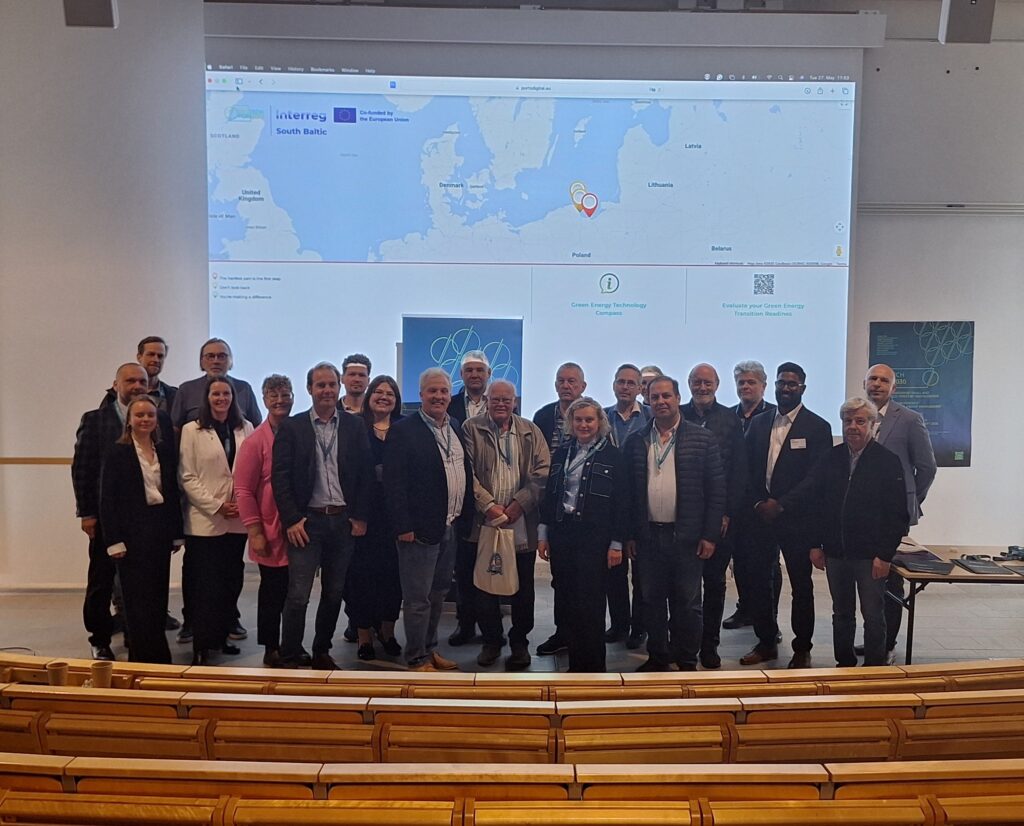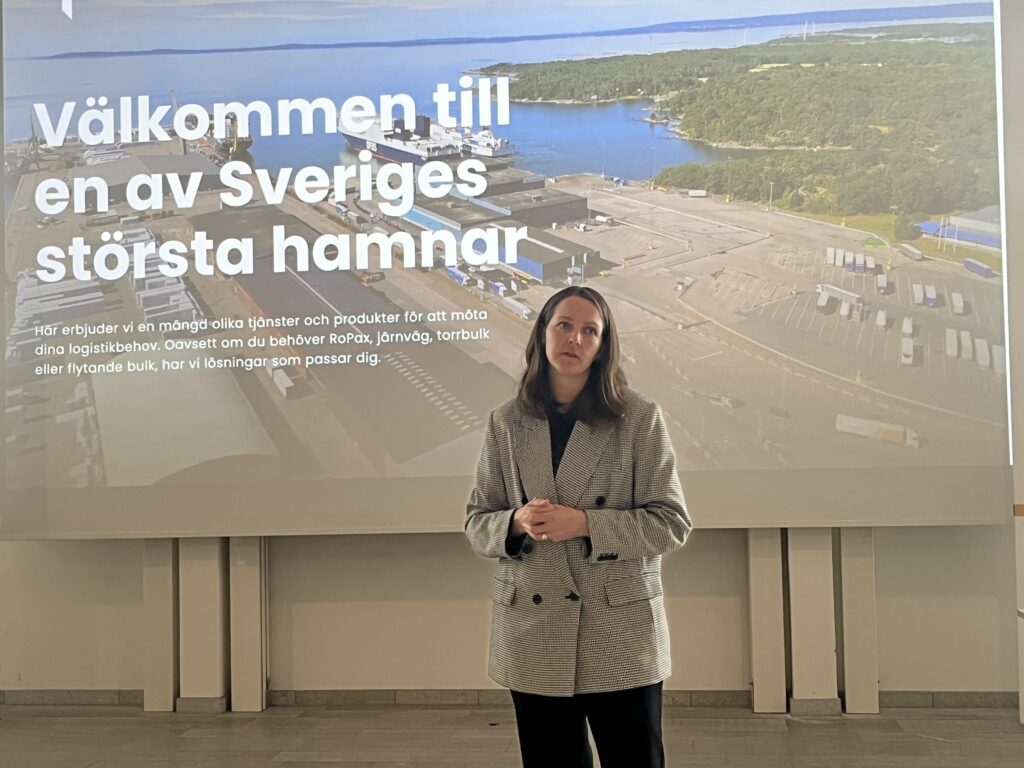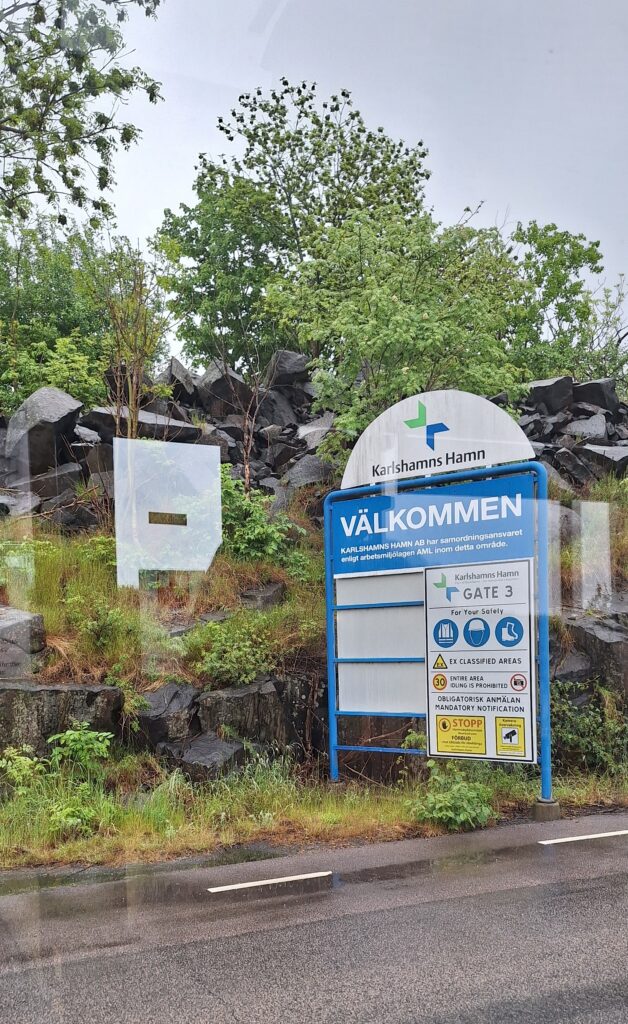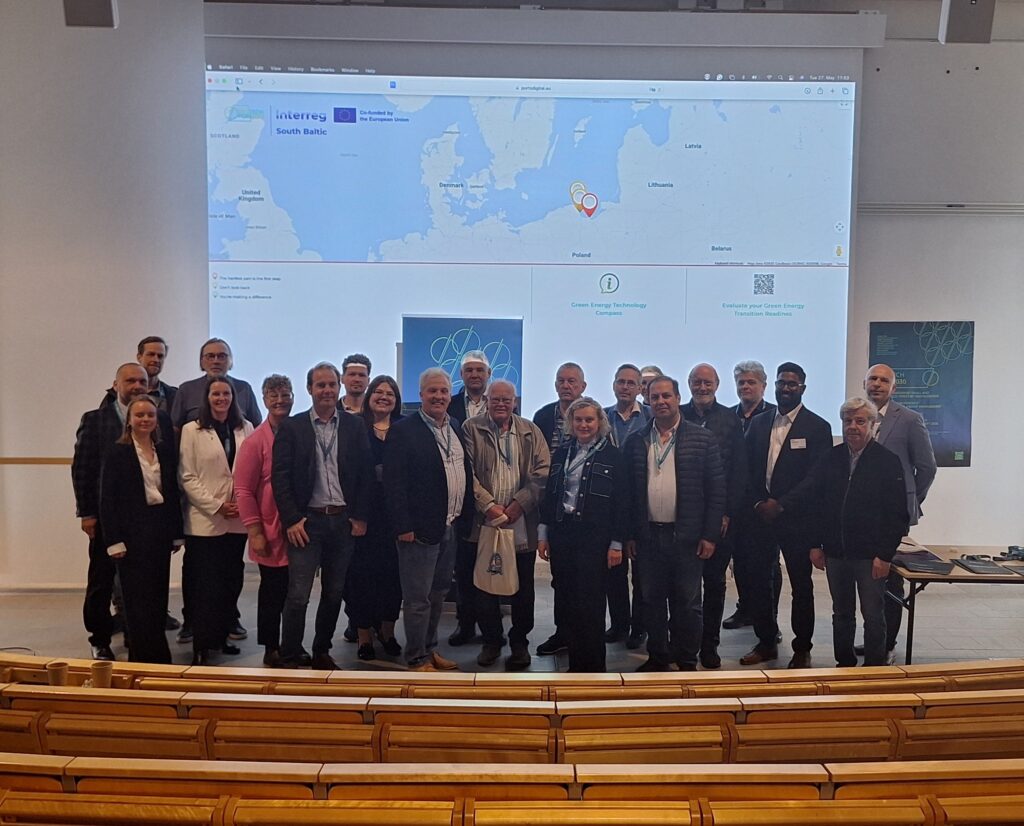On May 27-28, 2025, Karlshamn, Sweden, hosted a pivotal gathering for the DigiTechPort2030 project, the two-day meeting brought together maritime experts and project partners, including Lawrence Henesey, Andrius Sutnikas, Erik Bergefors, Norbert Klettner, Vytautas Paulauskas, Stefan Jankowski, Marcin Przywarty, Joanna Morawska, Caroline Säfström, Pär Carlsson, and Erika Zavackienė, to advance digitalization and decarbonization for small and medium-sized ports (SMSPs) in the South Baltic region. Coordinated by representatives from Hochschule Wismar, and Blekinge Institute of Technology, the agenda featured presentations, interactive workshops, a port tour, and a steering committee review. The event, hosted by the Blekinge Institute of Technology, and Port of Karlshamn, aimed to equip SMSPs with low-carbon technologies and ensure compliance with EU and IMO regulations, fostering collaboration and setting the stage for the project’s mid-term milestones.

Key Initiatives and Tools
The Karlshamn meeting showcased a suite of solutions to transform SMSP operations, emphasizing digital and sustainable advancements. Lawrence Henesey, Andrius Sutnikas, and Norbert Klettner highlighted digital transformation through AI, blockchain, and IoT applications, with tools like the CHESSCON yard viewer streamlining scheduling, cargo tracking, and emission reporting. These solutions address inefficiencies such as outdated processes, common in smaller ports, enabling SMSPs to enhance operational resilience and competitiveness in global maritime logistics. Stefan Jankowski, and Marcin Przywarty, focused on regulatory compliance, aligning with the EU’s Fit for 55 package and IMO’s MARPOL regulations. The Green Energy Harmonisation Toolbox and Green Policy Compliance Roadmap were presented as critical resources to simplify decarbonization, helping SMSPs navigate complex requirements like the EU ETS and FuelEU Maritime while integrating sustainable practices into daily operations. Erika Zavackienė introduced the Green Compass, a self-evaluation tool designed to assess sustainability progress, identify gaps, and prioritize actions for energy and infrastructure improvements. Praised in Karlshamn’s workshops for its practical, actionable framework, the Green Compass empowers SMSPs to align with regulatory goals and drive measurable sustainability outcomes, reinforcing the project’s commitment to equipping ports with tools for a greener future.

Port of Karlshamn Visit
Caroline Säfström and Pär Carlsson guided partners through a tour of the Port of Karlshamn, a dynamic hub handling 4.9 million tons of cargo annually. The visit showcased the port’s investments in solar energy, automated mooring, and robust crisis response capabilities, notably its effective handling of the Marco Polo oil spill. Highlighting intermodal connectivity and digital upgrades like cargo tracking systems, the tour provided a tangible example of how SMSPs can lead in sustainability. As a key component of the Karlshamn agenda, it inspired partners to explore replicating these advancements in other South Baltic ports, reinforcing Karlshamn’s role as a model for green innovation in the region.

Strategic Insights
The meeting underscored the need for a cohesive approach combining strategy, infrastructure, and compliance to drive SMSP decarbonization. Joanna Morawska highlighted Euroterminal’s 17 percent energy savings through solar panels, proving that green initiatives can boost both profitability and environmental impact. Andrius Sutnikas stressed that electrification, such as Onshore Power Supply, requires significant grid capacity, urging partnerships with national energy providers to ensure SMSPs remain competitive post-2030. Discussions also tackled workforce challenges, emphasizing the balance between automation and upskilling to address labor shortages while ensuring safety and efficiency, a critical factor for smaller ports with limited resources.
Soft Skills Training
Sofia Arvegård Wallin led engaging workshops on team dynamics and soft skills, fostering stronger collaboration among partners. These sessions were instrumental in aligning the team ahead of the mid-term review, building a shared commitment to DigiTechPort2030’s goals. By focusing on communication and interpersonal strategies, the training equipped partners to navigate technical and regulatory challenges together, ensuring smoother project delivery and a unified approach to sustainable port innovation.

